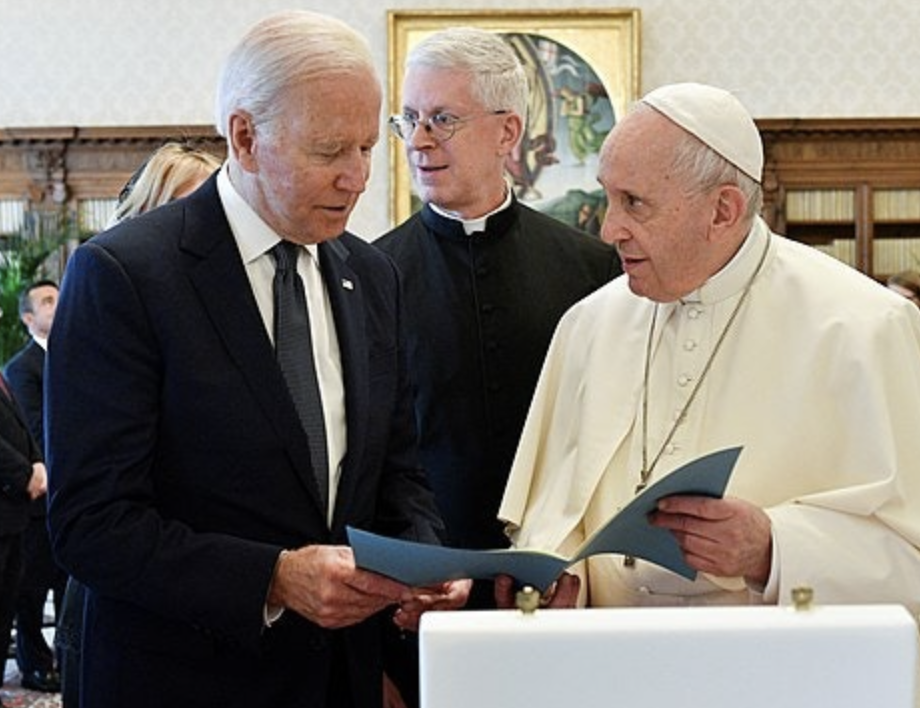When U.S. Catholic bishops gathered in Baltimore in 2023, they were prepared to vote on an updated document for believers seeking guidance in voting booths.
The draft prepared beforehand called abortion "a preeminent priority" for the bishops, but not – in a rhetorical switch – their most important issue in political life. Editors at The Pillar website obtained a copy of the proposed language and published a news story.
"Well, a number of bishops read that in The Pillar," noted Ed Condon, one of the website's two founders, "so several of them proposed amendments to change the text to stronger language. … More than one bishop told us he was only informed about the issue because he read it in The Pillar."
The final text included this phrase: "The threat of abortion remains our preeminent priority." In moral theology terms, "a preeminent priority" is quite different from a statement that abortion remains "our preeminent priority." That bright red line has caused fierce debates, especially with a pro-abortion-rights Catholic in the White House.
A heated opinion piece would have generated as many, or more, reader "clicks" than a hard-news report, which would have been "good for business," noted Condon.
Opinion is cheap. Reporting is expensive.
"We don't have ads on our site, which means we don't make a penny from page views," he wrote, in the website's newsletter. That was a strategic choice, "because we don't ever want to set ourselves up with a perverse incentive to write sensationalist stories we aren't sure about."
In the heated environs of Catholic cyberspace, that kind of reporting will draw fierce criticism from partisans on the other side of doctrinal debates that have political, moral and cultural implications.
Catholic liberals and many mainstream journalists screamed "foul" when The Pillar printed several 2021 stories – built on patterns in cellphone data – claiming that some important Catholic clergy in the United States, and in non-tourist zones inside the Vatican, were using the hookup app Grindr. A Religion News Service column called this coverage "unethical, homophobic innuendo."
Then again, The Pillar's editors fielded scathing emails and texts after a recent report claiming that the Vatican's Dicastery for the Doctrine of the Faith had been investigated in 2015 after accusations of minimal financial oversight and glaring irregularities – including one official attempting to remove "shopping bags full of cash."
The key: This powerful doctrinal department was, at that time, led by German Cardinal Gerhard Ludwig Muller, a hero among conservative Catholics. The cardinal blamed the errors on accounting errors, while also accusing The Pillar of violating the Eighth Commandment: "You shall not bear false witness against your neighbor."
At the moment, The Pillar is taking heat from conservatives for coverage raising questions about remarks by Sen. J.D. Vance – a prominent Catholic convert and the GOP candidate for vice president – defending legal access to mifepristone, an abortifacient pharmaceutical commonly called the "abortion pill."
The Pillar has requested a Vance interview to clarify his stance, asking whether – should he remain the Republican spokesman on this issue – his words and actions might fit the "obstinately persist" standard that would cause trouble under Catholic canon law.
"The bishops of this country … have been arguing about whether Catholic politicians supportive of legal protection for abortion should be admitted to the Holy Eucharist," wrote co-editor J.D. Flynn, in a newsletter commentary. The question some Catholics will ask is "whether what's good for the goose is good for the gander – and whether the bishops who discussed prohibiting Democrat pols from the Eucharist will take the discussion across party lines."
Flynn and Condon are both canon lawyers, as well as journalists. As co-owners of The Pillar, they want to continue to stress daily news reports, as well as deeper investigations into the legal, financial and doctrinal details of Catholic life.
Also, instead of pushing for "reforms" that modernize church doctrines and traditions, the website seeks "reforms" in which the behavior of church leaders "match the doctrines the church is trying to teach and defend," said Flynn, reached by telephone.
"For us, reform goes part and parcel with promoting true renewal – a greater flourishing of the church's mission. The goal is fewer things getting in the way of worship and mission."
FIRST IMAGE: Photo provided by the White House press office, as featured at The Pillar.

